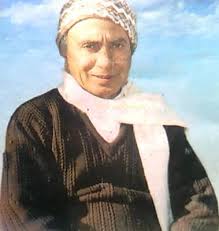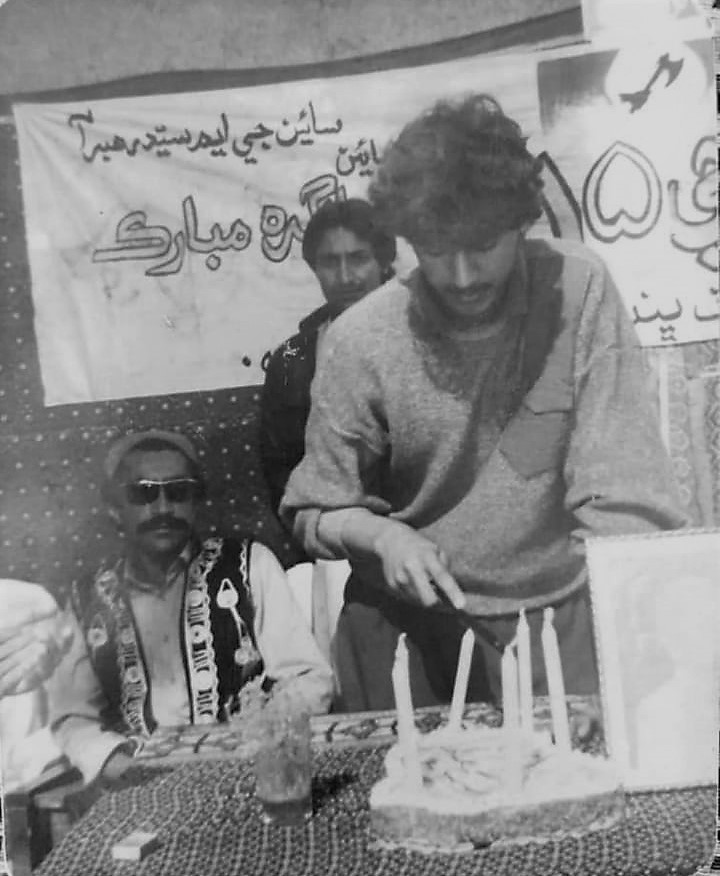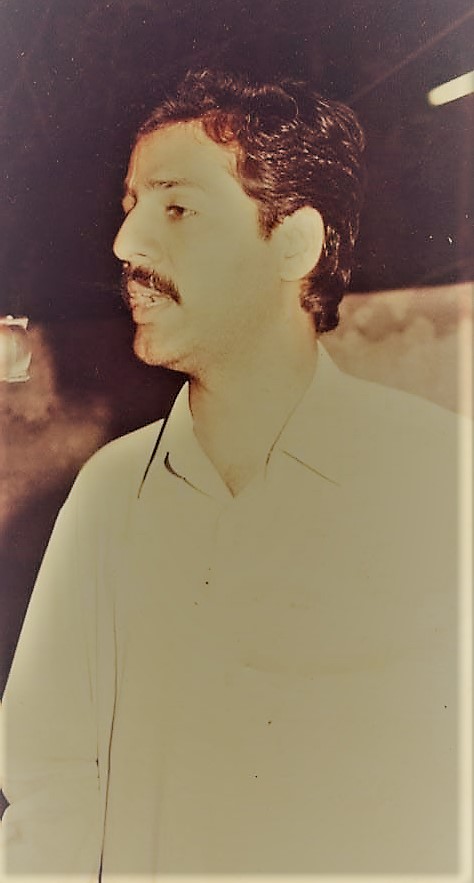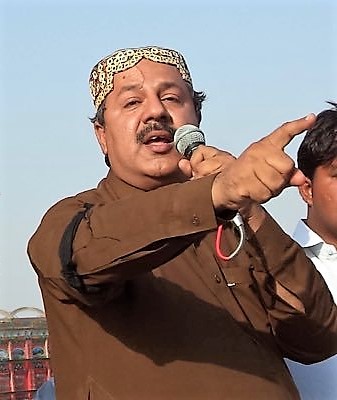
GM Syed: A Fountain of Parental Love
[Author’s Note: Will and Ariel Durant’s book – The Story of Civilization’s first volume appeared in 1935 and a complete set of eleven volumes was published in 1975. The authors took more than four decades to complete the manuscript. The readers well received the book. Therefore, their presence was sought in radio shows and press briefings. Will Durant has mentioned in one of his interviews that most common question around the globe was: ‘what is most important in human civilization, Intelligence, health or character? Will Durant responded the question that first comes the character, then health, and in the last – intelligence. I believe so, and it is still relevant in all walks of life.
I am of the view that in Sindh’s politics Mr. GM Syed, the nationalist leader and founder of Jeay Sindh Movement, was the powerhouse of ideas, and torchbearer of morality. Let me not shy, and state that he was the only politician, who practiced his ethos across the board, irrespective of political differences, power, age, class, and gender. I had been pondering over to document Jeay Sindh workers’ personal encounters with GM Syed. The present note was narrated to this scribe by Riaz Chandio. Mr. Chandio has been associated with Jeay Sindh Movement from his young age. He has been the President of Latif Sangat, a children’s wing, leader of Jeay Sindh Students’ Federation, and now he heads Jeay Sindh Mahaz, a faction of Jeay Sindh Movement. This is 10th article of this series.]
Dr. Zaffar Junejo
Before the partition of subcontinent in 1947, there was a robust presence of children’s organizations in Sindh. However this anecdote is related to the person who headed one of children’s organizations that sprouted in 1980s. Recently, Khalid Azad has compiled three volumes on children’s organizations, a much needed book. He has almost covered major organizations, which were active from 1970s to 1980s. Over the period, the book might be referred as a primary source on children’s organizations.
It direly needs to document the sufferings of the leaders of children’s organizations, and even their sources of inspirations.
I remember, in 1980s Chineng Sangat (Jeay Sindh Movement), Latif Sangat (Jeay Sindh Movement/ Jeay Sindh Mahaz), Sathi Barera Sangat (Democratic Students Federation) and Sujag Bar Tahreek (Awami Tahreek) were active, and toed their parties’ lines.

While I was wrangling around today’s topic, a question popped up in my mind: how the leaders of the parent bodies treated officials of children’s organizations. I tried to contact some of the heads of children’s organizations of those times, but succeeded only to hookup Riaz Chandio. I asked him, ‘what was Saeen G. M. Syed’s response or attitude towards you, while you were head of Latif Sangat?’ He kept me on hold for a while, and after a deep sigh, said that instead of a tagged response, he should be allowed to narrate the story.
I welcomed his idea. He went on to say: “It was July 1989 and I was president of Latif Sangat. There was a scheduled meeting at Sann. I, along with my friends was about to travel but before departing I got the message that the security forces have arrested my father, uncles, cousins and other relatives. The caller told me that the arrest was made on charges of harboring criminals.”

He added that on the raiding day his father, uncle and relatives were digging a well. Because in the arid areas the water table goes down in summer, and villagers have to dig another well. I interrupted him, and asked about the location of his village. He told that name of his village is Muhammad Sallah Choliani, named after his grandfather, and is adjacent to Mehar and Warah Talukas.
He continued: “I reached Sann along with friends and workers. When I greeted Saeen G. M. Syed, he held my hand compassionately and asked ‘why are you so sad’”.
The remembrance of the day still cherishes him, and he recounts that these words charged his spirits like oozed motherly love. He tried to hide his emotions, but failed, and stated that his father and relatives have been arrested. Instantly, Saeen G. M. Syed instructed Master Ghulam Qadir to book a telephone call for Mr. Subhan Memon, then Deputy Commissioner of Dadu.

For one or the other reasons, DC Dadu couldn’t be contacted. Meanwhile, Saeen G. M. Syed consoled him through various stories and anecdotes. Before departing, Saeen bounded Master Ghulam Qadir that ‘before the dawn Tanga should be arranged for Riaz so as he could catch an earlier bus’. Early morning, Master Ghulam Qadir woke him up, and handed him Saeen G. M. Syed’s letter addressed to Mr. Subhan Memon (DC, Dadu).
Riaz Chandio told, “I reached Dadu between 9:00 a.m. and 10:00 a.m. and gave the letter to Mr. Subhan. After exchanging some pleasantries, Mr. Subhan Memon frankly told me that he might have done lot of things, but the forces have raided the village and the civilian department’s involvement was just a token. He regretted that in a way he failed to respond Saeen G. M. Syed’s letter. However, Mr. Subhan told that he could favor me by arranging my meeting with my father and relatives. He did it, and gave me some fruits and cloths for them.”
I asked Riaz, ‘why till now, even after passing more than three decades, you vividly remember details of the event?’ An instant response came from him: ‘Saeen GM Syed’s love and parental empathy laid a foundation. Other stories are woven around it.’ He concluded: ‘that empathic foundation was so fragrant that till now it refreshes my memory in auto-generated way – and its effects are soothing and refreshing.’
[author title=”Dr. Zaffar Junejo ” image=”https://sindhcourier.com/wp-content/uploads/2021/11/Dr.-Zaffar-Junejo-Sindh-Courier.jpg”]Dr. Zaffar Junejo has a Ph.D. in History from the University of Malaya. He is freelance writer and his areas of interest are post-colonial history, social history and peasants’ history.[/author]
Click here for Part-I, Part-II, Part-III, Part-IV , Part-V, Part-VI,